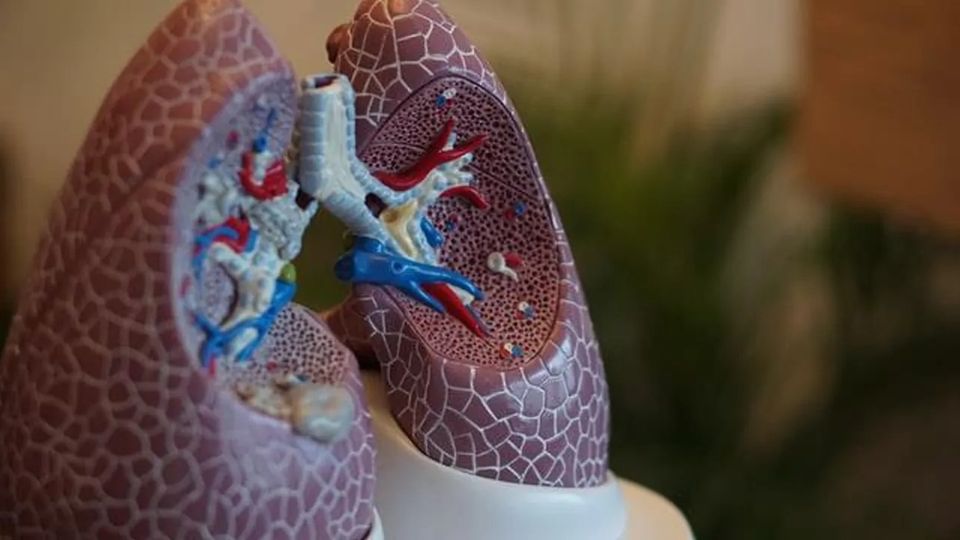Cell Therapy Shows Promise for Severe Lung Condition in Small Trial
An initial trial suggests a new type of cell therapy could improve the prognosis of acute respiratory distress syndrome.

Complete the form below to unlock access to ALL audio articles.
Initial trial suggests invariant natural killer cell therapy improves survival.
Promising trial results indicate that a new type of cell therapy could improve the prognosis of those who are critically ill with acute respiratory distress syndrome (ARDS) resulting from severe Covid-19.
Published in the journal Nature Communications, Professor Justin Stebbing of Anglia Ruskin University (ARU) is the joint senior author of the new study investigating the use of agenT-797, MiNK Therapeutic’s allogeneic, unmodified invariant natural killer T (iNKT) cell therapy.
The iNKT cell therapy has the effect of rescuing exhausted T cells and prompting an anti-inflammatory cytokine response, potentially activating anti-viral immunity to help these patients fight infection as well as to reduce severe, pathogenic inflammation of the lung.
Want more breaking news?
Subscribe to Technology Networks’ daily newsletter, delivering breaking science news straight to your inbox every day.
Subscribe for FREEThe exploratory trial included 20 mechanically ventilated patients with severe ARDS secondary to Covid-19. Of the 20 patients in the trial, 14 survived (70%) at 30 days (compared to a control group of 10%), and there was an 80% lower occurrence of bacterial pneumonia amongst those who received the highest dosage of agenT-797, compared to those who received fewer cells.
Twenty-one patients were treated overall (the main trial, plus one under compassionate use), which included five who were also receiving veno-venous extracorporeal membrane oxygenation (VV-ECMO), known as ‘the most aggressive salvage therapy’ for critically ill patients with ARDS. In VV-ECMO, deoxygenated blood is pumped through a membrane lung and returned to the body via a cannula.
This trial is believed to be the first immune cell therapy of any type to be used in critically unwell patients undergoing VV-ECMO. Survival of the VV-ECMO cohort was 80% after 30 and 90 days, and 60% after 120 days. This compares favourably to overall survival of 51% for patients with Covid-19 who were treated with just VV-ECMO at the same institution, during the same timeframe.
Joint senior author Justin Stebbing, Professor of Biomedical Sciences at Anglia Ruskin University (ARU), said“During this small, exploratory study we observed that MiNK’s iNKT cell treatment, which is also being advanced for people with cancer, triggered an anti-inflammatory response in ARDS patients.
“Despite a poor prognosis, critically ill patients treated with this therapy showed favourable mortality rates and those treated at the highest dose also had reduced rates of pneumonia, underscoring the potential application of iNKT cells, and agenT-797 in particular, in treating viral diseases and infections more broadly.
“AgenT-797 was manufactured rapidly and as opposed to using patients’ own cells, it is ‘off-the-shelf’ and made from healthy donors’ cells. The potential of this therapy to be used across a number of severe infections warrants randomised controlled trials.”
Dr Marc van Dijk, Chief Scientific Officer at MiNK and co-author of the study, said:
“These published findings reinforce the unique power and potential of iNKT cells to mitigate severe acute respiratory distress.
“The data demonstrate agenT-797’s encouraging survival benefit, ability to help clear secondary infections, and tolerable administration in ventilated patients and those on VV-ECMO support.”:
Reference: Hammond TC, Purbhoo MA, Kadel S, et al. A phase 1/2 clinical trial of invariant natural killer T cell therapy in moderate-severe acute respiratory distress syndrome. Nat Commun. 2024;15(1):974. doi: 10.1038/s41467-024-44905-z
This article has been republished from the following materials. Note: material may have been edited for length and content. For further information, please contact the cited source.

